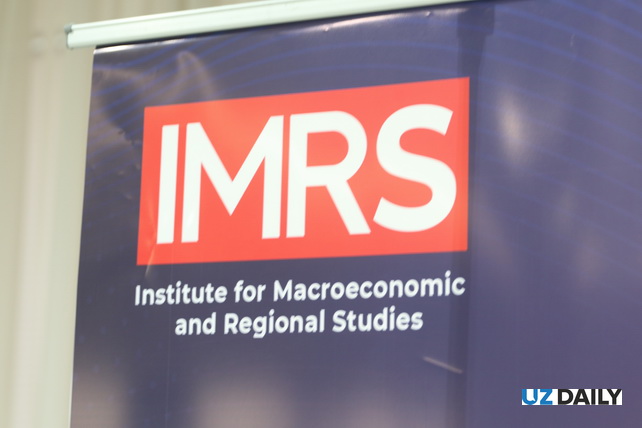
Uzbekistan’s industry grows 1.5 Times in 2017–2024: IMRI study
Uzbekistan’s industry grows 1.5 Times in 2017–2024: IMRI study
Tashkent, Uzbekistan (UzDaily.com) — A recent analysis by the Institute for Macroeconomic and Regional Studies (IMRI) under the Cabinet of Ministers of Uzbekistan highlights key trends in the country’s industrial development from 2017 to 2024.
During this period, industrial growth was driven by extensive reforms affecting production structures. The average annual industrial production growth rate stood at 6.2%, with a total increase of over 1.5 times over the seven years. This reinforced the role of industry as a key driver of economic growth, with its share in GDP rising from 22.2% in 2017 to 26.4% in 2024.
One of the major achievements was the shift from a resource-based economy to a more diversified industrial structure, with a strong focus on the development of manufacturing sectors. Manufacturing output grew 1.6 times compared to 2017, and its share of total industrial output exceeded 85%, one of the highest among Central Asian countries.
The industrial policy focused on accelerating the development of manufacturing sectors, leading to the emergence of new industry leaders. Production in the automotive and electrical engineering sectors grew by 2.9 times, textiles and garments by 2 times, and food products by 1.5 times. In metallurgy, thanks to a shift to deeper processing of raw materials, growth was 1.5 times, while in the construction materials sector, it increased by 1.7 times.
IMRI also developed the Industrial Product Export Diversification Index (DI), calculated as the inverse of the Herfindahl-Hirschman Index (HHI): DI = 10,000 - HHI. The DI levels are interpreted as follows:
8,000–10,000 — high (optimal) diversification
5,000–7,999 — medium
2,000–4,999 — low
Below 2,000 — very low
In recent years, the DI index in leading sectors has reached optimal levels:
Textiles and apparel — 8,149.5 (+571.5)
Chemicals — 8,245.2 (+1,044.8)
Metallurgy — 8,657.6 (+443.3), due to increased exports of processed copper products, including wire and pipes.
Automotive industry — 6,335 (+4,420.2), due to the expansion of the model range.
Electrical engineering — 8,922.4 (+589.8), due to the growth in complex and high-tech products.
Thanks to a more diversified industrial structure and export base, Uzbekistan has improved its position in the global Economic Complexity Index, ranking 80th out of 145 countries.
In the medium and long term, industrial policy will focus on developing sustainable production clusters and forming a balanced export basket by increasing the production of technologically advanced products. These goals align with the "Uzbekistan – 2030" Strategy, which aims to double export volumes, increase the share of technological industrial products to 32%, and enhance the global competitiveness of domestic industry.